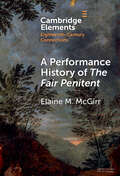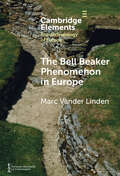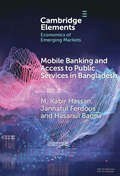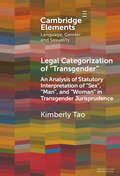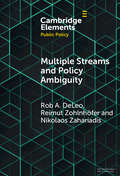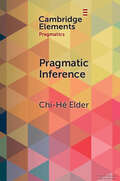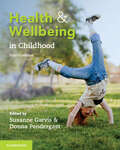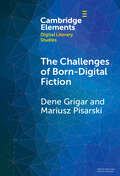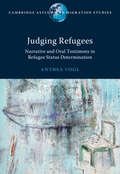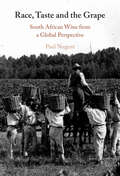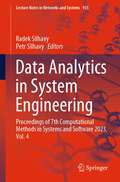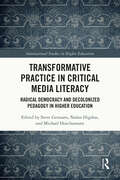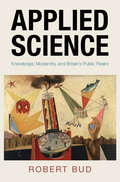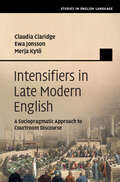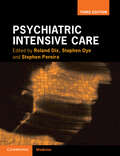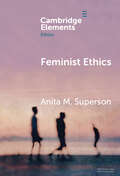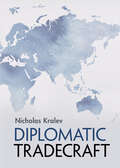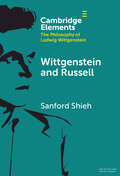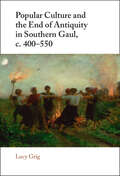- Table View
- List View
Social Media War 2021: Snap vs. Facebook vs. TikTok
by Daniel Fisher David B. YoffieThis case explores the competitive war between Snap, Facebook, and TikTok in 2021. The strategic focus is on Snapchat: how should it respond to the emergence of TikTok, and how should it compete with the dominant competitor in its space - Facebook. The case examines the history of Snap, its emerging threat from TikTok, and its on-going struggles to become profitable in the shadow of intense competition from Facebook, and especially Instagram. Looking at strategy from the perspective of Snap CEO, Evan Spiegel, the case asks whether Snap should seek new demographics to grow the user base, explore alternative business models such as WeChat, differentiate itself with augmented reality, or focus on privacy to distinguish itself from the competition. The context of these strategic choices is how do you win in a world with strong network effects and much larger competitors.
A Performance History of The Fair Penitent (Elements in Eighteenth-Century Connections)
by null Elaine McGirrTheatre is the most ephemeral of art forms. It is a truism that the ephemeral performance text is divorced from the static published play text. This Element is of the eighteenth-century performance history of The Fair Penitent demonstrates the interrelation of print and performance and models how readers can recover elements of performance through close attention to text. Traces of performance adhere to the mediascape in playbills and puffs, reviews and accounts. The printed text also preserves traces of performance in notation and illustration. By analysing traces found in performance trends, casting decisions, publication histories and repertory intertexts, this Element recovers how The Fair Penitent was interpreted at different points in the century and explains how a play that bombed in its first season could become a repertory staple.
The Bell Beaker Phenomenon in Europe: A Harmony of Difference (Elements in the Archaeology of Europe)
by null Marc Vander LindenCovering vast swathes of Europe, the Bell Beaker Phenomenon has enjoyed a privileged status in the history of archaeology and is often referred to as a key period in the transition from the Neolithic to the Bronze Age partly due to the emergence of social élites. After a brief presentation of the historiography of the Bell Beaker phenomenon, this Element offers a synthetic account of the available evidence structured on a regional basis. Following the renewed interest in human mobility generated by stable isotopes and ancient DNA studies, the central thesis developed here is that the Bell Beaker Phenomenon can adequately be described as a metapopulation, a concept borrowed from population ecology. This title is also available as Open Access on Cambridge Core.
Mobile Banking and Access to Public Services in Bangladesh: Influencing Issues and Factors (Elements in the Economics of Emerging Markets)
by null M. Kabir Hassan null Jannatul Ferdous null Hasanul BannaThis Element examines the role of mobile banking in accessing public services in Bangladesh. It also identifies the key influencing factors and challenges in accessing public services through mobile banking and suggests policy measures to overcome these challenges. Based on a survey of 300 people, the study finds that mobile banking facilitates access to public services, which is beneficial and effective for both rural and urban users, as technology can increase the quality of work. Despite the benefits, some individuals are reluctant to use the service due to high transaction costs and a lack of digital literacy.
Legal Categorization of 'Transgender': An Analysis of Statutory Interpretation of 'Sex', 'Man', and 'Woman' in Transgender Jurisprudence (Elements in Language, Gender and Sexuality)
by null Kimberly TaoThis Element analyzes the foundational frame of legal reasoning when courts interpret the 'plain language' and 'ordinary meaning' of terms such as 'sex', 'man' and 'woman'. There is a rich and complicated line of cases on how to define these terms and how to legally categorize transgender people. When dealing with different legal issues, judges need to give a clear 'yes' or 'no', determinate answer to a legal question. Marginal categorizations could be problematic even for experts. It analyses nine decisions that relate to transgender people's workplace protection under Title VII in United States and the right to marry in United Kingdom and Hong Kong. It brings in a historical discussion of the development of interpretative practices of law and legal categorization of transgender individuals across past decades, drawing on the intricate relationship between time and statutory interpretation.
Multiple Streams and Policy Ambiguity (Elements in Public Policy)
by null Rob A. DeLeo null Reimut Zohlnhöfer null Nikolaos ZahariadisThe last decade has seen a proliferation of research bolstering the theoretical and methodological rigor of the Multiple Streams Framework (MSF), one of the most prolific theories of agenda-setting and policy change. This Element sets out to address some of the most prominent criticisms of the theory, including the lack of empirical research and the inconsistent operationalization of key concepts, by developing the first comprehensive guide for conducting MSF research. It begins by introducing the MSF, including key theoretical constructs and hypotheses. It then presents the most important theoretical extensions of the framework and articulates a series of best practices for operationalizing, measuring, and analyzing MSF concepts. It closes by exploring existing gaps in MSF research and articulating fruitful areas of future research.
Pragmatic Inference: Misunderstandings, Accountability, Deniability (Elements in Pragmatics)
by null Chi-Hé ElderThe concept of inference is foundational to the study of pragmatics; however, the way it is theoretically conceptualised and methodologically operationalised is far from uniform. This Element investigates the role that inference plays in pragmatic models of communication, bringing together a range of scholarship that characterises inference in different ways for different purposes. It addresses the nature of 'faulty inferences', promoting the study of misunderstandings as crucial for understanding inferential processes, and looking at sociopragmatic issues such as the role of commitment, accountability and deniability of inferences in interpersonal communication. This Element highlights that the question of where the locus of meaning lies is not only relevant to pragmatic theory but is also of paramount importance for understanding and managing real-life interpersonal communication conflict.
Health and Wellbeing in Childhood
by Susanne Garvis Donna PendergastHealth and Wellbeing in Childhood provides a fundamental introduction for educators in key priority areas of health and wellbeing education, including physical education, promoting health in childhood, and strengthening social and emotional learning in young children. It approaches each topic with childhood diversity and complexity in mind. The fourth edition has been comprehensively updated and continues to explore relevant standards and policies, including the revised Early Years Learning Framework. It includes a new chapter on executive functions in early childhood, focusing on the development of higher-order skills required for children to engage in purposeful and goal-directed behaviours. Each chapter features case studies that exemplify practice; spotlight boxes that provide further information on key concepts; and pause and reflect activities, end-of-chapter questions and learning extensions that encourage readers to consolidate their knowledge and further their learning.
The Challenges of Born-Digital Fiction: Editions, Translations, and Emulations (Elements in Digital Literary Studies)
by null Dene Grigar null Mariusz PisarskiThe Challenges of Born-Digital Fiction: Editions, Translations, and Emulations addresses the growing concern about how best to maintain and extend the accessibility of early interactive novels and hypertext fiction or narratives. These forms of born-digital literature were produced before or shortly after the mainstreaming of the World Wide Web with proprietary software and on formats now obsolete. Preserving and extending them for a broad study by scholars of book culture, literary studies, and digital culture necessitate they are migrated, translated, and emulated – yet these activities can impact the integrity of the reader experience. Thus, this Element centers on three key challenges facing such efforts: (1) precision of references: identifying correct editions and versions of migrated works in scholarship; (2) enhanced media translation: approaching translation informed by the changing media context in a collaborative environment; and (3) media integrity: relying on emulation as the prime mode for long-term preservation of born-digital novels.
Judging Refugees: Narrative and Oral Testimony in Refugee Status Determination (Cambridge Asylum and Migration Studies)
by null Anthea VoglTo access state-based refugee protection regimes, refugee applicants must speak. They must narrate the basis of their claims in person, often before a single decision-maker, repeatedly and at length. In Judging Refugees Anthea Vogl investigates the black box of the refugee oral hearing and the politics of narrative within individualised processes for refugee status determination (RSD). Drawing on a rich archive of administrative oral hearings in Australia and Canada, Vogl sets global trends of diminished and fast-tracked RSD against the critical role played by the discretionary spaces of refugee decision-making, and the gate-keeping functions of credibility assessment. Judging Refugees explores the disciplining role of 'good refugee' stories within RSD and demonstrates that refugee applicants must be able to present their evidence in model Anglo-European narrative forms to be judged as authentic, credible and ultimately, to be granted access to protection.
Race, Taste and the Grape: South African Wine from a Global Perspective
by null Paul NugentWith the introduction of wine to the Cape Colony, it became associated locally with social extremes: with the material trappings of privilege and taste, on the one side, and the stark realities of human bondage, on the other. By examining the history of Cape wine, Paul Nugent offers a detailed history of how, in South Africa, race has shaped patterns of consumption. The book takes us through the Liquor Act of 1928, which restricted access along racial lines, intervention to address overproduction from the 1960s, and then latterly, in the wake of the fall of the Apartheid regime, deregulation in the 1990s and South Africa's re-entry into global markets. We see how the industry struggled to embrace Black Economic Empowerment, environmental diversity and the consumer market. This book is an essential read for those interested in the history of wine, and how it intersects with both South African and global history.
Data Analytics in System Engineering: Proceedings of 7th Computational Methods in Systems and Software 2023, Vol. 4 (Lecture Notes in Networks and Systems #935)
by Radek Silhavy Petr SilhavyThese proceedings offer an insightful exploration of integrating data analytics in system engineering. This book highlights the essential role of data in driving innovation, optimizing processes, and solving complex challenges in the field. Targeted at industry professionals, researchers, and enthusiasts, this book serves as a comprehensive resource, providing actionable insights and showcasing transformative applications of data in engineering. It is a must-read for anyone keen on understanding and participating in the ongoing evolution of system engineering in our data-centric world.
Transformative Practice in Critical Media Literacy: Radical Democracy and Decolonized Pedagogy in Higher Education (International Studies in Higher Education)
by Steve Gennaro Nolan Higdon Michael HoechsmannTransformative Practice in Critical Media Literacy brings together a diverse selection of essays to examine the knowledge production crisis in higher education and the role that news media and technology play in this process.This text highlights the importance of radical pedagogy and critical media literacy to fight back and reclaim higher education as the battleground for democracy and the embodiment of citizenship. Using a global and social justice lens, it explores the transformative potential of critical media literacy in higher education. It also provides real examples of current critical media literacy practices around the globe and of successful experiences inside classrooms. In an era of fake news, this text fulfils the yearning for critical media literacy to permeate higher education by drawing together practitioners and scholars speaking to journalism students, teacher candidates, and to students, scholars, and activists across a variety of spaces in higher education.This book will be a key resource for scholars, students, policymakers, community members and activists interested in education, politics, youth studies, critical theory, intersectionality, social justice and peace studies, activism, critical media literacy, communication, or media studies.
Making Target the Target: Boycotts and Corporate Political Activity
by Nien-He Hsieh Victor WuThrough the challenges facing Target, the case examines ways in which corporations can become involved in political and legislative debates and processes, ranging from campaign contributions to lobbying to political activism. In 2016, Target CEO Brian Cornell must determine how to respond to the debate over North Carolina's recently signed law, commonly known as "HB2," that invalidated LGBT non-discrimination ordinances at the local level. In contrast to other organizations, Target did not threaten to leave the state. However, its public statement in support of LGBT rights prompted a boycott against its stores. Adding to the difficulty was the fact that Target was caught on the other side of the debate in 2010 in one of the earliest high-profile controversies resulting from the Supreme Court Citizens United ruling. Target had contributed to a super PAC supporting business friendly candidates. As one of the candidate's opposition to same-sex marriage became well publicized, Target faced a consumer boycott as well as a shareholder proposal to change its policies on political contributions. The case covers current campaign finance regulations as they relate to business as well as Target's lobbying activities regarding online sales tax legislation.
DaVita Responds to COVID
by David Lane Susanna GallaniEarly in August 2021, DaVita CEO Javier Rodriguez was assessing the ongoing impact of the COVID-19 pandemic on his firm, which provided life-sustaining kidney dialysis to roughly 240,000 people. Effective infection control practices and information sharing had ensured that no COVID case had yet been transmitted to patients or staff on DaVita premises. A strong corporate culture had fostered the commitment among DaVita staff and management to each other and to their patients that had enabled their successful collective response. But 18 months into the pandemic, unprecedented staff attrition, exhaustion, and the now rapidly spreading Delta variant had Rodriguez and other DaVita managers concerned that the traits that had sustained the firm to date were no longer enough.
The Globalization of the NFL
by Juan Alcacer Mary FureyBy 2010, the National Football League (NFL) was still having trouble attracting both a global roster and fan base despite systemized attempts at internationalizing since 1989. Why? Was it simply a bad idea to try to export football, a sport that many considered uniquely American? Or was it a good idea that had been poorly executed?
Buhler: Mobilizing Industry Around A Common Purpose
by Franz Wohlgezogen Malini Sen Ranjay GulatiCase
The Last Man and Gothic Sympathy (Elements in the Gothic)
by null Michael CameronThis Element explores the theme of 'Gothic sympathy' as it appears in a collection of 'Last Man' novels. A liminal site of both possibility and irreconcilability, Gothic sympathy at once challenges the anthropocentric bias of traditional notions of sympathetic concern, premising compassionate relations with other beings – animal, vegetal, etc. – beyond the standard measure of the liberal-humanist subject, and at the same time acknowledges the horror that is the ineluctable and untranslatable otherness accompanying, interrupting, and shaping such a sympathetic connection. Many examples of 'Last Man' fiction explore the dialectical impasse of Gothic sympathy by dramatizing complicated relationships between a lone liberal-humanist subject and other-than-human or posthuman subjects that will persist beyond humanity's extinction. Such confrontations as they appear in Mary Shelley's The Last Man, H.G. Wells's The Time Machine, and Richard Matheson's I Am Legend will be explored.
Applied Science: Knowledge, Modernity, and Britain's Public Realm (Science in History)
by null Robert BudFor almost two centuries, the category of 'applied science' was widely taken to be both real and important. Then, its use faded. How could an entire category of science appear and disappear? By taking a longue durée approach to British attitudes across the nineteenth and twentieth centuries, Robert Bud explores the scientific and cultural trends that led to such a dramatic rise and fall. He traces the prospects and consequences that gave the term meaning, from its origins to its heyday as an elixir to cure many of the economic, cultural, and political ills of the UK, eventually overtaken by its competitor, 'technology'. Bud examines how 'applied science' was shaped by educational and research institutions, sociotechnical imaginaries, and political ideologies and explores the extent to which non-scientific lay opinion, mediated by politicians and newspapers, could become a driver in the classification of science.
Intensifiers in Late Modern English: A Sociopragmatic Approach to Courtroom Discourse (Studies in English Language)
by null Claudia Claridge null Ewa Jonsson null Merja KytöThe development of intensifiers has long been identified as an area of vibrant change in Late Modern English. This groundbreaking book provides the first comprehensive study of intensifiers in this period, and shows how they have changed over time. It uses speech-based and interactive data from the Old Bailey courthouse in London, enriched by extralinguistic information in the Old Bailey Corpus, to investigate an unprecedented range of intensifiers, including downtoners, boosters, and maximizers. The courtroom acts as a social microcosm of the period, providing unique insights on gender, class, and courtroom roles, and their effects on language use. The usage of intensifiers is illuminated from a lexico-grammatical angle, focusing on their formal and semantic features, as well as those of the items they modify. These perspectives are linked to temporal developments from 1720 to 1913, to offer a complete picture of variation and change in the intensifier area.
Psychiatric Intensive Care
by Roland Dix Stephen Dye Stephen M. PereiraFully expanded and updated, this third edition remains an essential reference text for all healthcare professionals and managers involved in the care of the mentally ill patient, particularly in the intensive care environment. It provides practical and evidence-based advice on the management of a diverse range of disturbed and severely ill psychiatric patients in secure hospital settings. Content is focused upon some of the most challenging areas of in-patient and acute mental health practice including the PICU, the acute in-patient, and the forensic and acute mental health crisis occurring in the community. Brand-new chapters explore topics such as challenging and sexually problematic behaviour within an in-patient and other settings, and international perspectives on PICU wards. This edition also covers technological developments for improving mental health care for patients, safety for those working and living within mental health units and importantly incorporates the UK MHA Code of Practice 2015.
Feminist Ethics (Elements in Ethics)
by null Anita M. SupersonFeminist Ethics provides an overview of feminist contributions to normative ethics, moral psychology, and metaethics. It argues that through their criticisms of traditional ethics and proposals for changes, feminists are advancing 'robust agency,' an account of ideal moral and rational agency that promises to give us better responses than those given in traditional ethics to problems in ethics, including how we know our duties, the kind of persons we should strive to become, and why we should act morally.
Diplomatic Tradecraft
by Nicholas KralevAs universities and governments seek to prepare the next generation of diplomats to manage international affairs, they finally have a teaching tool focusing on the practical knowledge and skills that in the past could be learned only on the job. Edited by Nicholas Kralev, founder of the Washington International Diplomatic Academy, Diplomatic Tradecraft brings together 18 career ambassadors with decades of experience to lift the curtain on a mysterious but vital profession, and to pass on the insights and abilities they gained to those who will succeed them. Beginning with an overview of diplomatic institutions and protocols, the text considers the key attributes of diplomatic communication and negotiation, as well as core specializations including economic, consular and public diplomacy. With compelling narratives, case studies and exercise scenarios, the chapters on various aspects of diplomatic practice form a cohesive and comprehensive volume, written in an accessible and engaging style.
Wittgenstein and Russell: The Vicissitudes Of Judgment And Proposition (Elements in the Philosophy of Ludwig Wittgenstein)
by null Sanford ShiehThis Element provides clear and concise explanations of the most important of these responses: Wittgenstein's criticisms of Russell's theories of judgment in the summer of 1913. These criticisms show that Russell's theories do not provide a coherent account of the truth and falsity of judgments without a satisfactory theory of propositions. They are of first-rate importance for Wittgenstein's early philosophical development, setting the path to the conceptions of proposition and of logic in Tractatus Logico-Philosophicus. This Element details the steps of this philosophical development, in Wittgenstein's “Notes on Logic” and his wartime notebooks, culminating in the recognition of primitive notions of possibility and necessity as central to propositional representation and the nature of logic. It also touches on further aspects of Wittgenstein's responses to Russell after the Tractatus, in writings of the middle and later periods of Wittgenstein's philosophy.
Popular Culture and the End of Antiquity in Southern Gaul, c. 400–550
by null Lucy GrigThis book offers a new look at the transformation of the classical world in Late Antiquity. It focuses on a particular region, rich in both archaeological and literary evidence, and examines the social, cultural and religious history of late antique southern Gaul through the lens of popular culture. Using material culture, comparative and theoretical material alongside the often dominant normative and prescriptive texts produced by the late antique church, Lucy Grig shines a fresh light on the period. She explores city and countryside alike as contexts for late antique popular culture, and consider a range of case-studies, including the vibrant late antique festival of the Kalends of January. In this way important questions of continuity, change and historical agency are brought to the fore. This title is part of the Flip it Open Programme and may also be available Open Access. Check our website Cambridge Core for details.

